Knowing is equated with seeing. If you see the light, it could mean that you see a light blinking on a radio tower or it could mean that you know something that makes you see everything different or it could mean both.
Philosophy is equated with thinking. Religion is equated with feeling. Today, like the physicist David Bohm, “we hold several points of view, in a sort of active suspension” (Dialogue). Like poet William Blake—”To see a World in a Grain of Sand, And a Heaven in a Wild Flower“—and like philosophers Søren Kierkegaard—we see the ‘eternal in the temporal’—and Ludwig Wittgenstein we say, “how extraordinary that anything should exist” (Lecture on Ethics).

Today we feel stoic acceptance of what the world throws at us. We say like Wittgenstein, “I am safe, nothing can injure me whatever happens” (Lecture on Ethics). With a “Click!” we connect to an awareness that leaves us feeling strangely lighthearted, for no apparent reason.
This feeling could best be described as “Self Actualization” as psychologist Abraham Maslow described, or as an “oceanic feeling” of limitlessness and oneness with the entire human race and universe as the mystic Romain Rolland described or it could be just one of those things: “What’s for supper?”
Today we go from a narrow self-centred perspective to a wider view of the world in its totality. We are ‘disturbed by joy’ like William Wordsworth was a few miles above Tintern Abbey:
“…I have felt a presence that disturbs me with joy
Of elevated thoughts; a sense sublime
Of something far more deeply interfused,
Whose dwelling is the light of suns,
and the round ocean and the living air,
and the blue sky, and in the mind of man” (source)

Religious belief and the lack thereof could be understood not as rival theories but as different ways of seeing. If a believer and an atheist look at a picture and one says it’s hideous and the other says it’s lovely, who’s right? who’s wrong?

Wittgenstein saw religion not as theoretical but as a “collection of pictures” reinforcing rules of life in the form of morality and a way of living that is itself what is eternal (Culture and Value, 1980). If someone taps into that eternal by living its ideal, one is living and being the eternal for a time like a leaf on a tree that is seasonal.
The world is factual. Facts are identifiable by science but facts can’t answer why you are here.
Like Wittgenstein said, “We feel that even if all possible scientific questions be answered, the problems of life have still not been touched” (Lecture on Ethics).
The philosopher Jean-Paul Sarte concluded in The Transcendence of the Ego that, “The World has not created the me: the me has not created the World” (p.105) but these two things are connected in a consciousness that is spontaneous. Sarte wrote, “Consciousness is always ‘of something‘, and therefore defined in relation to something else. It has no nature beyond this and is thus completely translucent” (source).

Some people picture a soul as translucent, as a kind of a ‘thing’—but not Wittgenstein. He said that if you look at soul language in religion, soul is not pictured as a thing but as integrity which is equally invisible. So if someone says, “He sold his soul for money” or “He sold his soul to the devil” it really means that he’s become materialistic. He has no deep moral sense and moral sense, as we know, is not visible.
A man may have everything but feel horribly afraid of what’s coming. A good man, however, enjoying a good way—tried, true and eternal through himself and those who live after—why, he has nothing to fear. Ever.
No matter what.
He can be light as a feather. He is not chained by anything material. He can never be judged as having lived a futile life even if he dies poor and unknown and didn’t do very much. After all, what does a sparrow do? What are flamingos for?

According to Maslow’s Hierarchy of Needs, a person can’t get to the highest level of “self-actualization” without making it by lower level needs such as food, sex and security.
To be self-actualized is to be unafraid of the unknown, untroubled by ambiguity and triviality, self-aware, accepting weaknesses while developing strengths, living a “meaningful life” by having a purpose that goes above and beyond one’s self to a greater good (see: Self Actual).

If you were asked, “Do you understand the difference between thinking and being?” what would you say?
Understanding the difference between thinking and being is like when police catch someone in the act of a crime and say, “What do you think you’re doing!” which is another way of saying, “How stupid are you?”
This is the exact moment when the cop and the criminal give their collective heads a shake. Most people (most of the time) see the world from inside a self-enclosed bubble of preoccupied thoughts that shape how the world is perceived. But this way of seeing is limiting because it sees a world perceived through language and opinion.
When a person with soul (and a clear conscience, if possible) wakes up, looks around and says full of happiness, “This is a miracle!” he isn’t just describing an event. It’s really his reaction to something significant that he is being, becoming and enjoying.








 Stage one is like childhood. The focus is on fun. It’s the aesthetic stage. Picture someone self-indulging in enjoyable experiences who gets bored and feels empty and lonely. He buys a car and enjoys it for a while but gets bored so the search for pleasure continues. (It’s a circular trap.)
Stage one is like childhood. The focus is on fun. It’s the aesthetic stage. Picture someone self-indulging in enjoyable experiences who gets bored and feels empty and lonely. He buys a car and enjoys it for a while but gets bored so the search for pleasure continues. (It’s a circular trap.) Ethical people are concerned with actions effecting others because ethical choices evoke a higher set of principles. But the ethical life doesn’t leave room for self-exploration which is a key to stage three – the highest plane of existence (
Ethical people are concerned with actions effecting others because ethical choices evoke a higher set of principles. But the ethical life doesn’t leave room for self-exploration which is a key to stage three – the highest plane of existence ( “Marry and you will regret it! Don’t marry, you will also regret it! Marry, don’t marry, you’ll regret it either way. Laugh at the world’s foolishness, you will regret it. Weep over it, you’ll regret that too. Hang yourself, you’ll regret it. Don’t hang yourself and you’ll regret that too. Whether you hang yourself or don’t hang yourself, you will regret both. This, gentlemen, is the essence of all philosophy.”
“Marry and you will regret it! Don’t marry, you will also regret it! Marry, don’t marry, you’ll regret it either way. Laugh at the world’s foolishness, you will regret it. Weep over it, you’ll regret that too. Hang yourself, you’ll regret it. Don’t hang yourself and you’ll regret that too. Whether you hang yourself or don’t hang yourself, you will regret both. This, gentlemen, is the essence of all philosophy.” Most people, generically speaking, if asked how they should live, might blink and mumble something like, “Oh? I dunno? Be a good person? Take care of family? Work hard? Do something you love? Think happy thoughts? Be a good person? (Oh, did I say that already?)...”
Most people, generically speaking, if asked how they should live, might blink and mumble something like, “Oh? I dunno? Be a good person? Take care of family? Work hard? Do something you love? Think happy thoughts? Be a good person? (Oh, did I say that already?)...” To see clearly and holistically is the root of all wisdom. You can look back on your life and realize that sometimes you were walking in a fog without knowing. The clouds were all around but now, they’re gone.
To see clearly and holistically is the root of all wisdom. You can look back on your life and realize that sometimes you were walking in a fog without knowing. The clouds were all around but now, they’re gone.
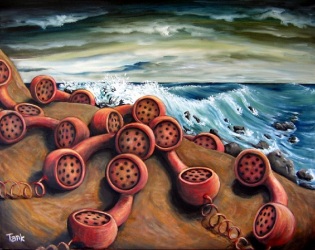 It’s a question we might ask our self on occasion. There’s a lot we should do but don’t. Why is that? Maybe it’s because we’re human and being human isn’t easy. We know where we’re headed. As Sigmund Freud said, “Everyone owes nature a death.”
It’s a question we might ask our self on occasion. There’s a lot we should do but don’t. Why is that? Maybe it’s because we’re human and being human isn’t easy. We know where we’re headed. As Sigmund Freud said, “Everyone owes nature a death.”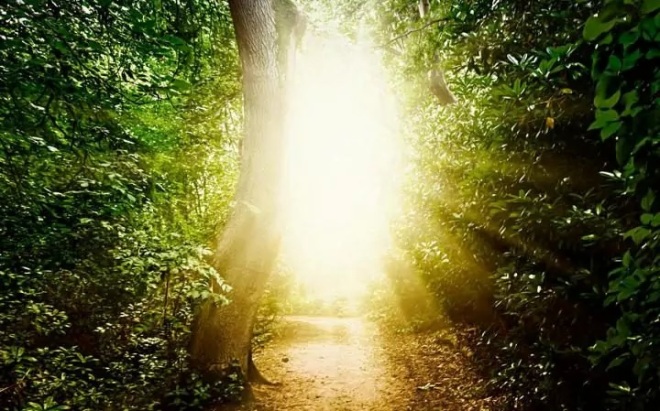
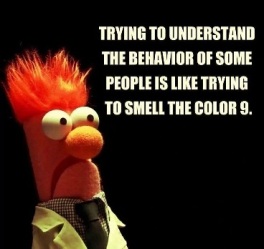 Stuck between finite awareness and infinite imagining and longing, everyone wants to enjoy themselves, but feeling ethically responsible in our ever expanding human ant hill can get in the way of enjoying.
Stuck between finite awareness and infinite imagining and longing, everyone wants to enjoy themselves, but feeling ethically responsible in our ever expanding human ant hill can get in the way of enjoying.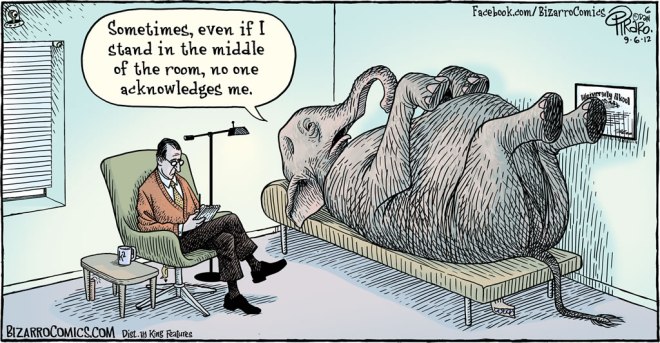
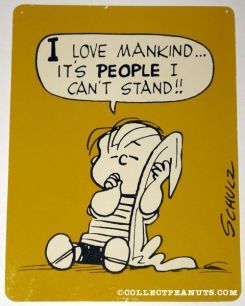 The human race as a whole has replaced the role of God and fate. This has encouraged a standard of morality that doesn’t rise higher than the goal of the greatest happiness for the greatest number.
The human race as a whole has replaced the role of God and fate. This has encouraged a standard of morality that doesn’t rise higher than the goal of the greatest happiness for the greatest number.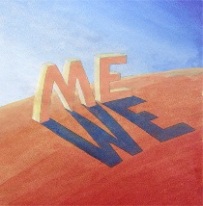 We’re encouraged to go from a selfishly materialistic “me generation” into a “we generation” where we celebrate differences at the same time we level everyone in the mania of a carefully orchestrated “We Day” pep rally for social change (see:
We’re encouraged to go from a selfishly materialistic “me generation” into a “we generation” where we celebrate differences at the same time we level everyone in the mania of a carefully orchestrated “We Day” pep rally for social change (see: 
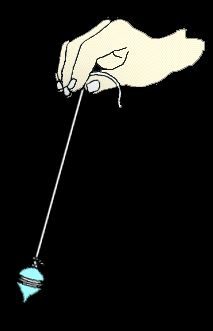 Both “me” and “we” perspectives seem oblivious of transcending their pronoun. Do you put yourself first or the group? Some might say, “That depends.” Sigmund Freud (1856-1939) observed, “In the depths of my heart I can’t help being convinced that my dear fellow-men, with a few exceptions, are worthless.”
Both “me” and “we” perspectives seem oblivious of transcending their pronoun. Do you put yourself first or the group? Some might say, “That depends.” Sigmund Freud (1856-1939) observed, “In the depths of my heart I can’t help being convinced that my dear fellow-men, with a few exceptions, are worthless.” People know you by what you do but how do you identify yourself? Your self is your will and your lack of will. Your will pulls you together into a coherent whole complete with muscular tension.
People know you by what you do but how do you identify yourself? Your self is your will and your lack of will. Your will pulls you together into a coherent whole complete with muscular tension.
 People try to make themselves happy. When Judy Garland sang “
People try to make themselves happy. When Judy Garland sang “

 Think about how a rainbow appears. It’s your eye at the right angle combined with sunlight and water drops. Without you to see, a rainbow doesn’t appear. But a rainbow is more than light refraction. It isn’t a symbol. It has no reason for being. It’s light playing. It’s fun. It’s beauty.
Think about how a rainbow appears. It’s your eye at the right angle combined with sunlight and water drops. Without you to see, a rainbow doesn’t appear. But a rainbow is more than light refraction. It isn’t a symbol. It has no reason for being. It’s light playing. It’s fun. It’s beauty. Imagine yourself as a child. You are fed and content. Your world is not filtered by custom, interpretation, and analysis. The world is new. Imagine seeing a butterfly for the first time!
Imagine yourself as a child. You are fed and content. Your world is not filtered by custom, interpretation, and analysis. The world is new. Imagine seeing a butterfly for the first time! In
In  Even though we know what we should and shouldn’t do, something invariably happens to complicate simplicity and sour generosity. Irritation, frustration and sadness can shred good intentions.
Even though we know what we should and shouldn’t do, something invariably happens to complicate simplicity and sour generosity. Irritation, frustration and sadness can shred good intentions. By the end of the day we’re tired. We wind up flaked out on a chair, covered in cheesie dust. What went wrong? We tried, but therein is our problem. Who was the one trying? Was the spirit willing and the flesh weak? Remember Dr. Schwartz’s scientific dictum, “You are not your brain” (see:
By the end of the day we’re tired. We wind up flaked out on a chair, covered in cheesie dust. What went wrong? We tried, but therein is our problem. Who was the one trying? Was the spirit willing and the flesh weak? Remember Dr. Schwartz’s scientific dictum, “You are not your brain” (see:  Our brains can be like a Siren song luring us like sailors to shipwreck on a rocky coast. Thoughts become habitual through repeated pleasure-seeking and dopamine. Our heart may say, “No-no,” but our brain says, “Yes-yes!” Our brain often urges us to do what we probably shouldn’t.
Our brains can be like a Siren song luring us like sailors to shipwreck on a rocky coast. Thoughts become habitual through repeated pleasure-seeking and dopamine. Our heart may say, “No-no,” but our brain says, “Yes-yes!” Our brain often urges us to do what we probably shouldn’t. We may have more luxuries and conveniences thanks to the magic of technologies, but that doesn’t mean we’re happier. We’re busier. We now lack time to focus on things that produce a quieter happiness.
We may have more luxuries and conveniences thanks to the magic of technologies, but that doesn’t mean we’re happier. We’re busier. We now lack time to focus on things that produce a quieter happiness.